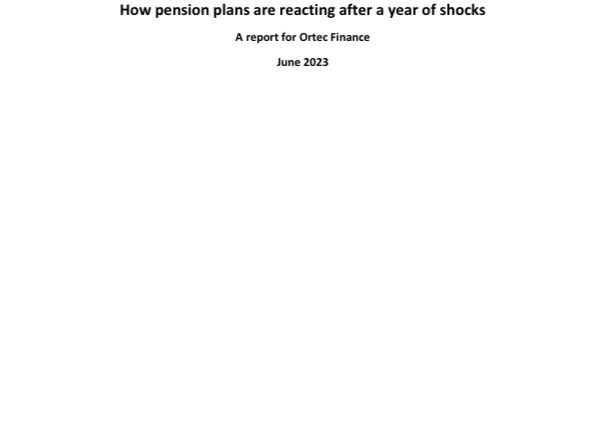U.S. Public Pensions Are Building for The Long-Term. How Pension Plans Are Reacting After A Year Of Shocks.
By Ortec Finance
U.S. public sector pension plans are planning ahead for the potential impact of further economic and market shocks, a new report from Ortec Finance, the leading global provider of risk and return management solutions for pension funds and other institutions, shows.
Its report based on a study* of U.S. public sector pension plan managers at U.S. public sector pension plans who collectively help manage over $1.315 trillion, found 90% plan to increase spending on scenario modeling and stress testing in the next two years to help manage the increased risk of market shocks.
The research found strong support for scenario modeling and stress testing – 44% say they are very effective and 56% say they are mostly effective at asset liability management (ALM).
The increased emphasis on scenario modeling and stress testing builds on recent experience, including the rise of inflation and interest rates following the COVID-19 pandemic which has put funded ratios at U.S. public sector pension plans under strain.
Read book “here”











